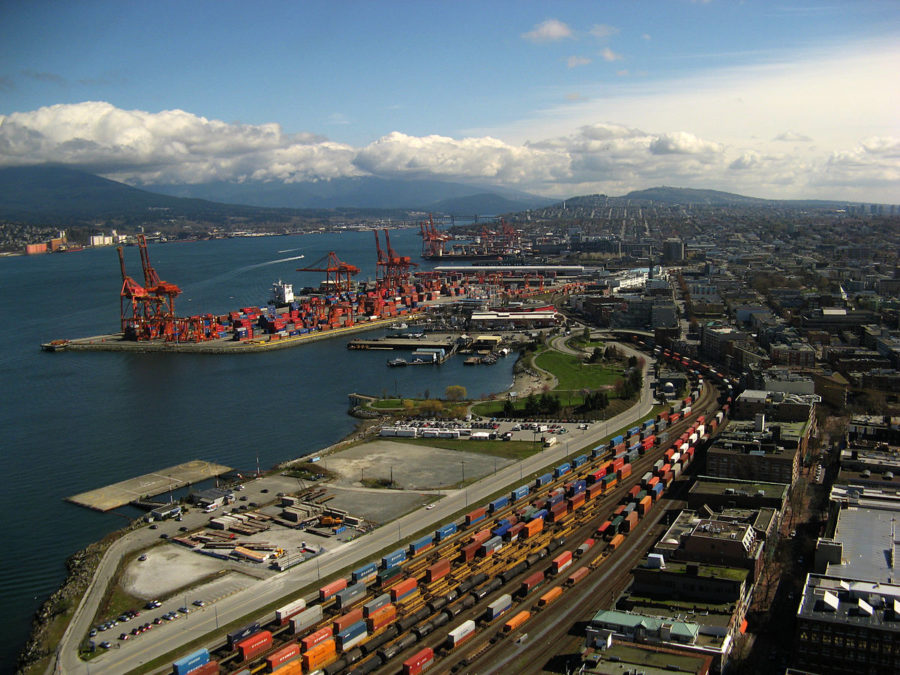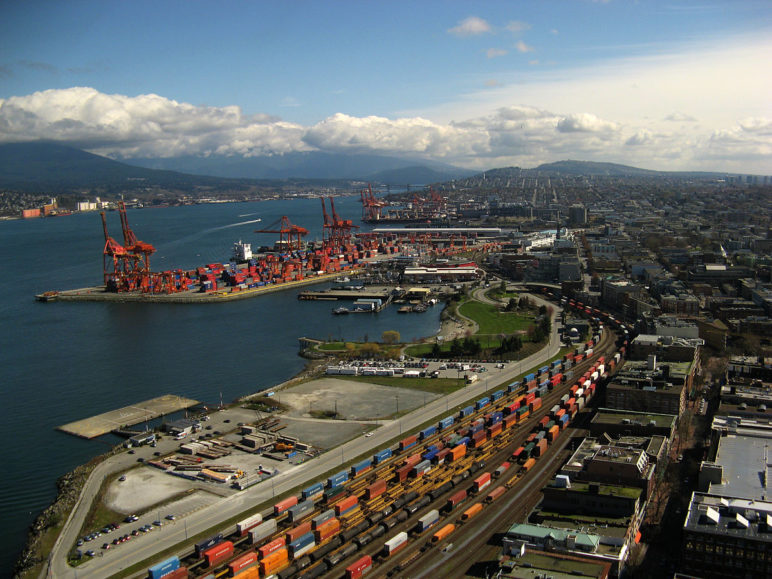At the end of January, a coal export project died a quiet death. With little more than a blandly worded notice on its website, the Port of Vancouver, BC officially rescinded the permit for the proposed coal terminal at Fraser Surrey Docks (FSD) just a few miles outside the city of Vancouver.
The decision seemed like a mystery, considering that the Port had long acted as a cheerleader for the coal terminal. The Port first approved the project in mid-2014, just two weeks after receiving the final review documents. Less than a year later FSD proposed an overhauled plan for the project, which the Port approved within months. After that, the Port and FSD acted in lockstep, joining together to move the project through the courts. As recently as November 2018, lawyers for the FSD and the Port stood united, collaborating to defend an appeals court decision that had removed one of the project’s final roadblocks.
The commercial failure of FSD’s proposed coal port raises important questions about the finances of coal exports.

So why on earth did the Port decide to cancel a project it had supported for years?
A recently released letter from the Port to FSD offers a clue: money. As it turned out, Fraser Surrey Docks had no committed customers. Not even one. Just read the letter below, in which the Port of Vancouver states it clearly: “at a December 2018 meeting FSD confirmed that the Project currently has no customer.”
FSD’s inability to lock down a customer doomed the project. With no customer, Fraser Surrey Docks had no money for the project. Without money, it had completed almost no work on the ground, which violated the permit requirement to make “substantial progress on construction of the authorized works prior to November 30, 2018.” At the same time, uncertainty about the coal terminal’s prospects was holding up two other projects at FSD: a grain terminal and a potash shipping facility. So—as the letter below details—the Port eventually decided that it was high time to scrap the coal terminal and move on to more promising opportunities.
The commercial failure of FSD’s proposed coal port raises important questions about the finances of coal exports.
Remember, this was a dirt-cheap project, carrying an up-front price tag of just Can$50 million—a pittance compared with, say, the Millennium Bulk Terminals in Longview, Washington, slated to cost at least US$680 million. FSD also had an official permit, unlike the proposed coal terminals in Washington and Oregon. And in its permitting documents, FSD revealed that it was explicitly targeting US coal exporters, particularly Cloud Peak and Signal Peak, who were already shipping coal to Asia.
The fact that neither Cloud Peak nor Signal Peak put a penny towards the cheapest of all of the available export terminals—a project with a permit in hand, no less—underscores the key economic reality of selling coal to Asia: coal exports are risky at best, and flat-out unprofitable at worst. Considering that Cloud Peak lost a lot of money shipping coal to Asia, the prospect of buying additional port space must not have looked all that enticing.
Even today, however, many pro-coal legislators in the Western US hang tight to the coal export fantasy, believing—against the evidence—that coal exports to Asia would flourish if a West Coast coal terminal could somehow get a permit. The Wyoming legislature actually passed a bill authorizing the state to hire a private attorney to sue Washington over its permit denial of the Millennium Bulk Terminal coal export project in Longview, Washington.
Meanwhile, a coal terminal just a few hours’ drive to the north of Millennium already had its permit…but no customers.
The key lesson of FSD’s demise is that the gloomy economic fundamentals of Asian coal exports have spooked coal companies and scared away investors. No amount of cheerleading from the Wyoming legislature can change that.












Michael Riordan
As Bill Clinton, once said, “It’s the economics, stupid!”
Or something like that.